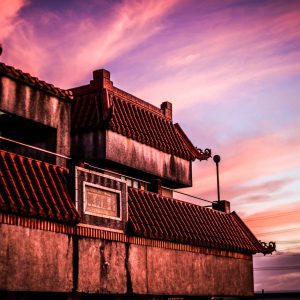Written by Jerry Feng
Edited by Patrick Ang and Aaron Medina
June 11, 2020 marks the 35th year of Ateneo Celadon. This organization experienced many changes over the years, but what it advocates remains quite similar all throughout despite several rewordings.
However, what do we do in Celadon and why do we do it? This is something that all Executive and Central Board (EBCB) interviewers must explain to each new member during the Interviews Week every year. And yet, it’s also something that a lot of people don’t really understand very well. When you ask a Celadonean what Celadon is, 10 out of 10 would tell you something along the lines of “it’s the Chinese, culture-sharing org.” But if you ask about the org’s advocacy, chances are it’ll be quite difficult for many to come up with a very in-depth answer.
People know us for being the Chinese org with many projects. However, compared to other student organizations like ISDA and Kythe-Ateneo with clear advocacies that they fight for, Celadon’s advocacy may often leave even our own leaders wondering about things like “Is our advocacy even reachable? Who actually stayed for it? Why is our advocacy something that people can’t really understand or fight for? Where does culture-sharing even stand in this society?”
I’d be lying if I said that ever since my freshman year, I’ve already fully understood our advocacy and that I ran for EB because I believed in it because frankly, for the first three years of my Celadon journey, I stayed for the family. However, now coming into my last year, I finally saw the value in our advocacy.
In light of Celadon’s 35th year, I believe that it’s only timely for any confusion to be clarified. As a disclaimer, know that everything here is based on my own opinions and experiences so far. It’s neither a reflection of anyone else nor is it an official statement of the org as a whole.
In order to better understand the relevance of Celadon’s advocacy within today’s society, I believe it’s important to first acknowledge the value of what the org stands for. To explain that, I’d like to draw references from an anime loved by many: Naruto Shippuden.
For anyone who has watched Shippuden, I’m certain that the Pain arc is very familiar to you. “Feel pain. Contemplate pain. Know pain. Accept pain. Those who do not understand true pain can never understand true peace”. These were the words of Pain as he destroyed the Hidden Leaf. At that point, Pain wasn’t thinking about the peace he wanted for the world. The Hidden Leaf destroyed everything he has ever had, and yet they thought that their village had felt the same amount of pain as him. He just wanted them to understand what true pain really feels like.
Naruto got summoned back to the village right when it got destroyed, and the main topic of the story now revolves around war and peace. How can we really combat pain? This is a question that even the world today has no answer to. But the author, Kishimoto, answered it through the character of Naruto, and that is to believe in hope.
“The pain of loss is the same for us all. You and I have both suffered this pain. You fight for your justice, and I for mine. We are ordinary humans, driven by revenge in the name of justice. However, if we disguise our revenge by words of justice, this “justice” grows, gives birth to revenge, and thus the chain of hatred begins”, Pain explained as Naruto was immobilized during the fight. He then asked, “to create peace, how will you face this hatred?” which left Naruto speechless as he really didn’t know the answer.
When Hinata got injured and Naruto lost control over the nine tails, Pain was both excited and disappointed. Even the so-called Child of Prophecy turned into a monster when he felt hatred and pain.
At that moment, Naruto’s father appeared and made him understand what created Pain in the first place was actually the ninja world. So when Naruto defeated Tendo Pain and found the real Pain’s hideout, he managed to suppress his anger and asked to hear Pain’s story first. Pain’s real name is Nagato, and he told Naruto about his past. Naruto expressed that he could understand, though he still couldn’t get himself to forgive them. But he won’t kill them because he wants to inherit his master’s will and end this cursed chain of hatred.
“If there’s a thing such as peace, then I’ll grasp it!” Naruto quoted Nagato’s very words which once inspired Jiraiya for his novel. The only difference is that pain made Nagato give up on this path, but Naruto managed to stand his ground even after experiencing the same level of pain.
This made Nagato see hope. Perhaps this Child of Prophecy would really be able to do what he couldn’t. That moment that made Nagato see hope once again marked the true defeat of Pain. As for when can true peace truly be achieved, it really doesn’t matter as much. Because as long as people will continue to believe in hope, the world will continue to be pushed towards peace.
This arc in Naruto portrayed the chain of hatred really well, at the same time it showed us that the way to end this cursed chain isn’t through pain and revenge, but rather through hope and kindness. Just like Naruto, I’d like to think that Celadon is a symbol of hope. I think it was brilliant for our predecessors to decide on “Fostering Nationhood Through Culture-Sharing” as the organization’s advocacy because it shows that they saw culture-sharing’s role as a guiding light for our organization until today. In Celadon, we treat everyone genuinely as family because it’s the one thing that we can pass down for generations to come. By treating each other like family, we only hope that they may do the same with even more people as well.
A number of people associate politics with greed and conflict — not to discount the commendable efforts of selfless public servants — but culture-sharing means openness and harmony. When people learn to accept, understand, appreciate, and treat each other with openness, I believe that is when the negative aspects that are associated with politics can truly be defeated. Hence, this is what makes Celadon important today. Culture-sharing was never just about the food and activities, but the values that lie beneath. It is to show that in a world divided by politics and discrimination, there is still hope for people to come together. Because what’s more important than a way to achieve it, is the power to believe in it.
Special credits to Masashi Kishimoto, the producers of Naruto, TV Tokyo and KissAnime for the images and quotes used.




